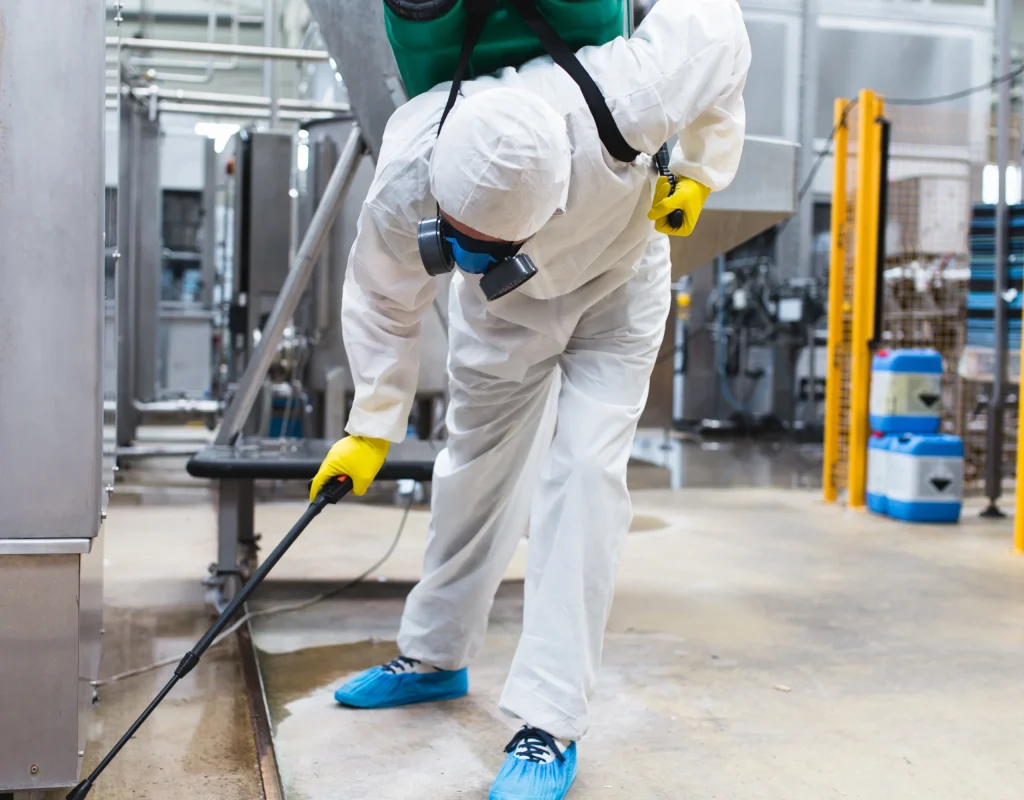Menu
There is a constant flow of people, goods and, without a doubt, pests in active processing. Pests are a high-risk hazard in the manufacturing premises and its supply chain. In addition to damaging your inventories in a variety of ways, pest also poses health and safety hazards to your employees, which can affect performance, disrupt operations, and ultimately lead to loss of revenue. Hence Acuity Industrial Pest Control service is here to help you with any kind of pest under the sun. Acuity Pest Control provides the best pest control service in Bangalore. The presence of pests not only destroys the affected goods and causes production losses but also results in the loss of customer trust. Getting rid of pests is even more important to comply with industry auditing standards on the part of the inspection manufacturers. Industries is all about productivity and economic value — the margins can be high. You really can’t afford the damage that a serious pest problem might bring. That’s why many of the Bangalores leading logistics specialists rely on Acuity Pest Control for guidance and support, and their customers need it.

Maintaining a pest-free environment in industrial, warehouse, and logistics facilities is a cornerstone of operational success. Pests such as rodents, insects, and birds not only pose risks to stored goods but also threaten employee health and can damage a company’s reputation. Effective pest management strategies, tailored to the unique challenges of each facility type, are critical to achieving safety, compliance, and efficiency.
Industrial facilities are often large, complex spaces with constant activity, making them vulnerable to pest infestations. Factors such as the movement of goods, proximity to raw materials, and structural vulnerabilities create an environment conducive to pests. Common pests include:
To address these challenges, industrial facilities should implement the following strategies:
Integrated Pest Management (IPM): IPM is a holistic approach that combines prevention, monitoring, and control. It focuses on reducing pest populations to acceptable levels rather than complete eradication, which is often unsustainable.
Exclusion and Structural Maintenance:
Sanitation and Hygiene:
Employee Awareness and Training:
Warehouses are high-risk environments for pest infestations due to their large open spaces, diverse storage conditions, and frequent movement of goods. Common pests include:
Storage Optimization:
Temperature and Humidity Control:
Routine Inspections:
Waste Management:
Logistics facilities face unique pest control challenges due to the constant movement of goods, vehicles, and personnel. Without proper control measures, pests can spread through the entire supply chain, impacting customer satisfaction and business operations.
Vehicle Inspection and Cleaning:
Dock and Loading Area Management:
Shipment Inspections:
Collaboration with Suppliers:
In India, pest control is regulated by the Insecticides Act, 1968, and the Insecticides Rules, 1971. Businesses must:
Compliance with these regulations not only avoids legal penalties but also enhances a company’s reputation for quality and safety.
Pest management is not just about eliminating pests but also about creating an environment that prevents infestations in the first place. By adopting tailored pest control strategies for industrial, warehouse, and logistics facilities, businesses can:
For professional assistance, Acuity Pest Control offers customized solutions designed to address the specific needs of industrial, warehouse, and logistics facilities in Bangalore. Their expertise ensures long-term pest management, enabling your business to thrive in a pest-free environment.
Contact Acuity Pest Control today for a consultation and safeguard your operations against pests.
Our team of experts is ready to help you eliminate pests quickly and safely. Get your free quote now!